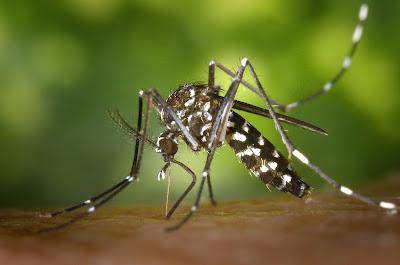Dengue virus (DENV) is one of the most important arboviruses that can infect humans. DENV can be divided into two serotypes, DENV-1 and DENV-2. DENV-1 is the most common serotype, and is mainly transmitted by *Aedes aegypti mosquito. DENV-2 can also be transmitted by Ae. albopictus.
This disease is becoming more
common in the Caribbean, South America, and East Asia, due to the rapid and
widespread spread of DENV-2.
The dengue virus is also called
yellow fever virus, yellow fever, dengue, and also known as the Asian
encephalitis virus. The virus is normally transmitted by the bite of an
infected *Aedes mosquito. Dengue fever is the most common form of dengue
infection. The illness is characterized by severe headache, high fever, nausea,
vomiting, abdominal pain, and other symptoms.
Dengue can cause a large number of
complications. In severe dengue, the patient may develop kidney failure,
bleeding into the lungs, and bleeding into the brain. In addition, severe
dengue leads to mortality in about 10% of patients.
Dengue does not cause death.
However, severe dengue can cause severe illness with high mortality rates,
hepatomegaly, and hemorrhage. The World Health Organization (WHO) and the
Centers for Disease Control and Prevention (CDC) recommend that pregnant women,
young children, the elderly, and those with chronic conditions (e.g., diabetes,
AIDS, renal failure, heart disease, and cancer) should seek medical attention
as early as possible to promptly manage typhoid fever, dengue, and chikungunya
fevers. With a bit of work and spit, you can do this too.
In the United States, the majority
of the cases are still acquired in tropical and subtropical areas, where
mosquito breeding occurs year-round. The virus is transmitted from the bite of
an infected mosquito through an open wound. The virus can then be spread to
others by the bite of an infected person. The disease is transmitted from
person to person through contact with infected blood or organs (e.g., the
brain, eyes, or ears).
The prevalence of dengue is increasing,
and more and more people are becoming infected. In Indonesia, the number of
DENV-infected patients increased from 3,000 in 1992 to 90,000 in 2015.
Signs and symptoms
Symptoms are similar to those of
common flu, but they are more frequent and less benign.
This is because the virus takes
about 7-10 days to cause symptoms. Symptoms usually appear at the end of the
fifth or sixth day. They include: headache, nausea, malaise, dizziness, loss of
appetite, and chilliness. Usually, the symptoms are mild, but may start to
worsen after 5-7 days.
How Is Dengue
Transmitted to Humans?
The dengue virus is spread through a
human-to-mosquito-to-human cycle of transmission. The replication of the virus
that can last for three days. The virus would then be transmitted to one person
to the next person in the chain of infection.
Dengue
Life-Cycle
Mosquitoes, in particular, need to be able to
remain in water for a considerable length of time in order to complete their
life cycle. As the mosquito’s body begins to develop, it will grow and change
shape. This is the stage at which they will be able to survive and reproduce.
Diet for dengue fever
When a person is suffering from
dengue, maintaining platelets count become the main Concern.
While doing this, one should also
be concerned with the blood sugar level. If the person is getting stressed,
this is a sign that the person is not eating properly.
To ensure your platelets are
functioning properly, you should take a small supplement of vitamins. The
following are some of the ways to increase your blood platelet counts:
The following is based on my own
experience and the information that I have experienced in the past. The first
point is to try to increase the count of white cells. The second is to try to
increase the number of platelets. The third is to try to increase the size of
the blood cells.
Following Foods and
Diet Can help Accelerating the process of Recovery.
· Diet
is one of the most effective ways to prevent dengue fever. But, as one who has
dengue fever, I believe that good nutrition should be the primary method to
prevent this infection.
· To
combat dengue fever, one needs to consume a range of food and fluids at regular
intervals. But if we were to follow the guidelines of the WHO, the treatment
should be made up of citrus juices, fresh coconut water, pomegranate juice,
even fresh pineapple juice. (Do not forget to drink plenty of fluids and keep
your hands and feet clean.)
· Oral-
rehydration therapy is best to overcome weakness & bring the fever down.
· Try
to include fresh vegetables in your diet. They are an excellent source of
vitamins, minerals and fiber. They are also low in calories, so you can eat
less.
· Green
leafy vegetables are the best way to combat dengue fever. A number of recent
articles have claimed that the virus is under-diagnosed and under-treated as a
result. One of the most effective ways to combat dengue fever is to eat green
leafy vegetables.
· It’s a good idea to be vegetarian if you are sick. But a well-balanced diet is essential to prevent dengue fever.







0 Comments